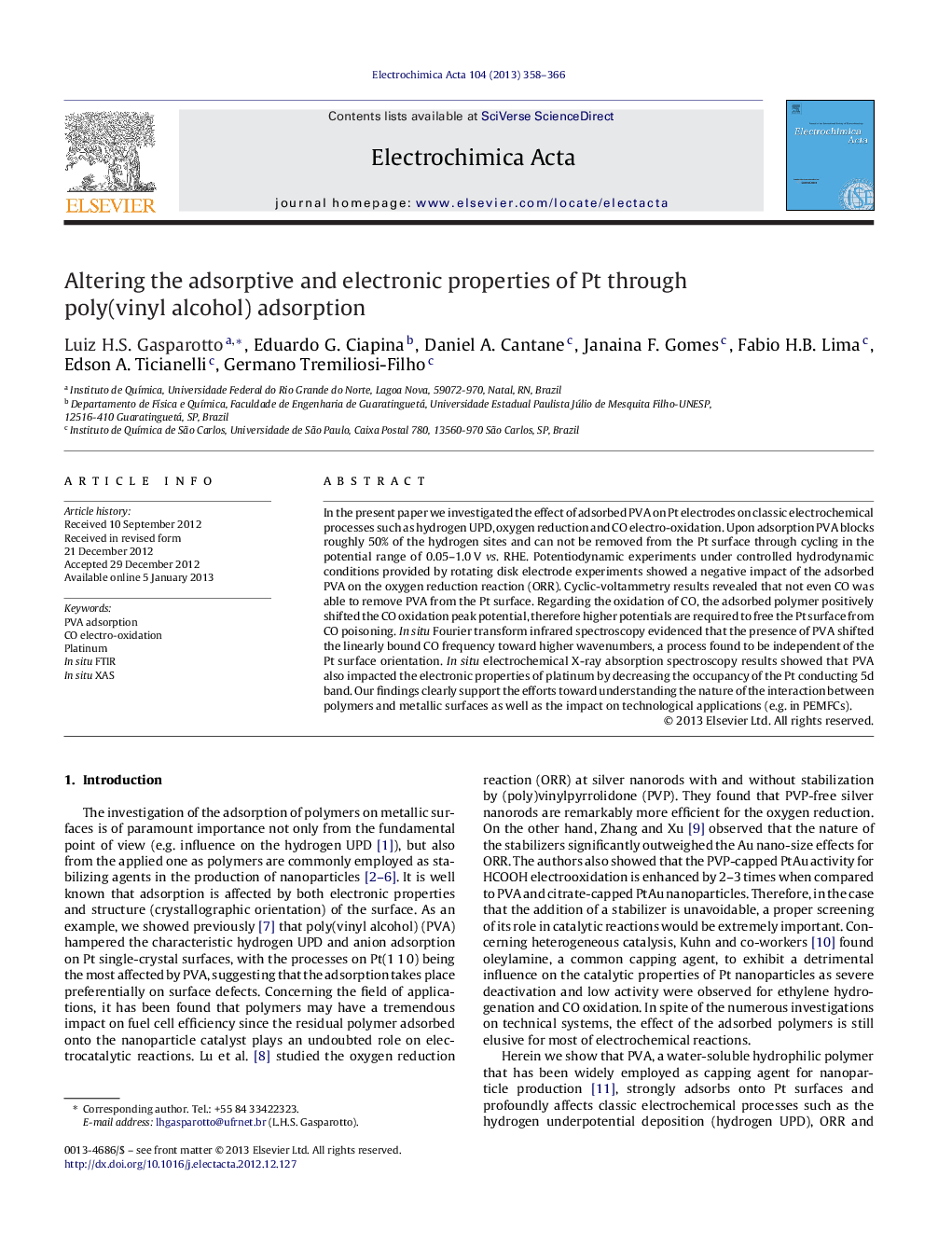| Article ID | Journal | Published Year | Pages | File Type |
|---|---|---|---|---|
| 6617929 | Electrochimica Acta | 2013 | 9 Pages |
Abstract
In the present paper we investigated the effect of adsorbed PVA on Pt electrodes on classic electrochemical processes such as hydrogen UPD, oxygen reduction and CO electro-oxidation. Upon adsorption PVA blocks roughly 50% of the hydrogen sites and can not be removed from the Pt surface through cycling in the potential range of 0.05-1.0Â V vs. RHE. Potentiodynamic experiments under controlled hydrodynamic conditions provided by rotating disk electrode experiments showed a negative impact of the adsorbed PVA on the oxygen reduction reaction (ORR). Cyclic-voltammetry results revealed that not even CO was able to remove PVA from the Pt surface. Regarding the oxidation of CO, the adsorbed polymer positively shifted the CO oxidation peak potential, therefore higher potentials are required to free the Pt surface from CO poisoning. In situ Fourier transform infrared spectroscopy evidenced that the presence of PVA shifted the linearly bound CO frequency toward higher wavenumbers, a process found to be independent of the Pt surface orientation. In situ electrochemical X-ray absorption spectroscopy results showed that PVA also impacted the electronic properties of platinum by decreasing the occupancy of the Pt conducting 5d band. Our findings clearly support the efforts toward understanding the nature of the interaction between polymers and metallic surfaces as well as the impact on technological applications (e.g. in PEMFCs).
Related Topics
Physical Sciences and Engineering
Chemical Engineering
Chemical Engineering (General)
Authors
Luiz H.S. Gasparotto, Eduardo G. Ciapina, Daniel A. Cantane, Janaina F. Gomes, Fabio H.B. Lima, Edson A. Ticianelli, Germano Tremiliosi-Filho,
